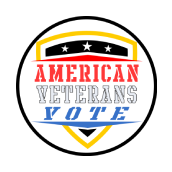Published April 3, 2023
Why Veterans Need To Vote
American Veterans Vote (AVV) was founded after it became clear to a growing number of veterans that our political environment was increasingly divisive and counterproductive. Our political leadership needs to return to focusing on the security, prosperity, and the collective welfare of all Americans. Veterans, by their large numbers, learned values, and broad community involvement, are uniquely well-equipped to make this happen. The U.S. needs them to return to service – to vote, campaign for good candidates, and, when possible, run for office.
Politics alienates many veterans because it seems to run counter to the values we learned on active duty. We all joined the military for different reasons, but learned the same lessons: discipline, order, national purpose, teamwork, the team’s success is more important than one person, everyone pulls their weight, and no one gets left behind.
Politics routinely alienates veterans because it all too often is bombastic, divisive by nature, and, too frequently, seemingly populated with self-serving individuals. Yet, our political system desperately needs an infusion of those military life values – service, teamwork, and patriotism – right now.
As those of us in the Infantry learned, sometimes one must wade into chaos and disorder to accomplish the mission. Veterans need to wade into the chaos and disorder of politics right now because those political bodies that we find alienating are exactly where the decisions are being made that affect our lives, our children’s future and, in some cases, the security of the Republic itself. Adding that we are in probably the most divisive era that the U.S. has seen since the 1960’s, that need is clearly urgent.
Besides their military life values, veterans have a second contribution to make: practical experience in war. The decline in military experience in high elected offices of the U.S. government has contributed to major lapses in national security policy. In 1975, almost 80% of the Congress had military experience. Today, that number is circa 15%. The last U.S. President that served on active duty in the regular forces left office in 1992. Any combat veteran since Viet Nam has had firsthand experience with the impact of those bad decisions.
The clearest evidence of that paucity of combat experience is the two decades of war in Afghanistan and Iraq that we just completed. Despite its Constitutionally-mandated responsibility, never in those 21 years did Congress declare war or demand that the Executive make a case as to why we were in those wars. That cost the nation that vital connection between the American people and the purpose of military conflict. Because the U.S. lacked any clearly-stated political goals for the war, our war effort wandered aimlessly from tactical goal to tactical goal, then finally failed altogether.
AVV believes that the U.S. needs her veterans in the political sphere for three reasons. First, our Republic accepts civilian control of the military as an axiom. However, that assumes that most elected officials will have maybe only a generalized, but a realistic knowledge of the different services, the sacrifices of military members and their families, and the limits of military power. Throughout our history, that has been true because most served. Now, since very few have served, most lack any understanding of what military forces can and cannot and should and should not do.
Second, many politicians see veterans as just another small, needy constituency. The veteran population is too often stereotyped as being somehow damaged, unstable, or at risk; they speak in their own “lingo,” appear insular, and possess “dangerous” skills. In truth, the veteran population is broad, diverse, and positive. Some veterans, due to their service, do do need medical or social help. But, the total veteran population is much wider and deeper than that. Veterans are much more likely than non-veterans to start a business, be active in their communities, seek good schools for their children, and reject the idea that victimhood is their highest achievement. And, the veteran community is much more ethnically, religiously, and culturally diverse than any other one segment of the electorate.
Finally, the U.S. needs veterans in politics because it needs their values and patriotism to counter increasingly hostile, divisive, and antagonistic political discourse. Because of their common military experiences, veterans trust each other and can discuss issues on the basis of values, not party affiliation. They can say with authority to a political candidate, “I’ve served my time protecting and sacrificing for the U.S. What have you done to earn my vote?”
For all the above reasons, veterans need to vote, support the election campaigns of good candidates, and, when possible, run for office. It is the best way veterans can help stop the atrophy of our national security capabilities, and limit the misuses of military force or pre-empt its misuse as a substitute for more appropriate elements of national power. Second, it is the best way to encourage politicians to see veterans as a national resource rather than a lingering population problem. And, most importantly, it is the best way to bring our best American values back to politics.
Frederick Douglas once wrote that, “A man’s head will not long remain wrong if his heart is right.” That rule applies to politics as well. Veterans are uniquely well equipped to bring that “right heart” to our politics – which the U.S. really needs right now.
AVV Point of Contact: Michael H. Schoelwer; mhschoelwer@gmail.com

